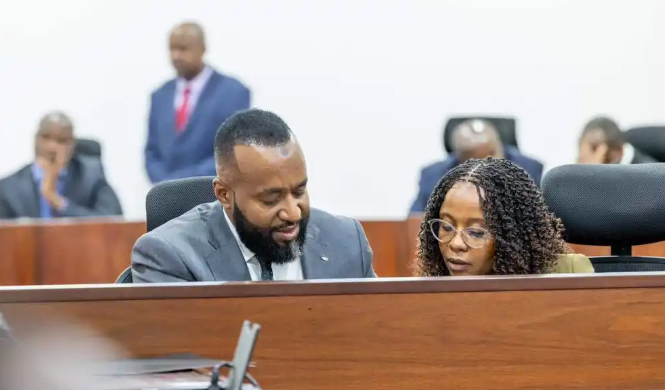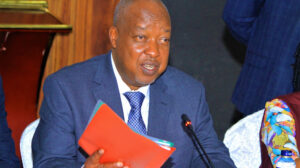Mining Cabinet Secretary Hassan Joho has announced several appointments to County Artisanal Mining Committees in Bomet, Nakuru, and Nandi counties.
These committees are essential to the management and oversight of artisanal mining activities in these regions.
However, the announcement has sparked concerns due to two appointees being assigned to the same positions across multiple counties.
Mourice Amalemba was appointed to serve on the artisanal mining committees for both Bomet and Nakuru counties, while Sylvanus Too received appointments to the committees for Bomet, Nakuru, and Nandi counties.
This overlap has raised questions about the feasibility of the appointees effectively fulfilling their duties in multiple regions.
Concerns were also voiced about whether the Ministry of Mining could have appointed other qualified individuals to avoid duplication and ensure each county has dedicated representation.
Despite the concerns, the appointments do not violate any provisions of the Mining Act.
Mourice Amalemba was appointed under section 94 (2), paragraph (b) of the Mining Act, which assigns him the role of representing the Director of Mines (National Director) and acting as the Secretary to the committees for both Nakuru and Bomet.
Meanwhile, Sylvanus Too’s appointment falls under paragraph (e) of the same section, designating him as the representative of the Ministry of Mining’s inspectorate division in the three counties of Bomet, Nandi, and Nakuru.
According to the Mining Act, these appointments are within legal bounds, as the roles assigned to both Amalemba and Too allow them to serve across multiple counties without contravening any legal provisions.
Their responsibilities involve providing advisory services to the Director of Mines regarding the granting, renewal, and revocation of artisanal mining permits within their respective regions.
These appointments will last for a period of three years, commencing on September 13, 2024.
As part of the County Artisanal Mining Committees, the members will play a pivotal role in shaping mining policies and ensuring the responsible management of artisanal mining operations in their counties.
However, the practicality of these dual roles remains a point of debate.
There are concerns about whether Amalemba and Too will be able to manage the workload and fulfill their duties effectively across the different counties.
Additionally, some observers have questioned why other qualified individuals were not appointed to these roles to prevent overlaps and ensure a more localized focus on the issues facing each county.
CS Hassan Joho’s announcement follows an extensive country-wide tour to familiarize himself with the mining sector after taking office.
During his tour, Joho learned about the unique challenges facing miners in various counties, including reports of internal conflicts within mining groups in Nandi County.
These issues have highlighted the importance of appointing capable individuals to the County Mining Committees to mediate and resolve conflicts, as well as to provide guidance on regulatory matters.
While the appointments have drawn mixed reactions, they underscore the government’s ongoing efforts to strengthen the artisanal mining sector and ensure that local communities benefit from mining activities.
The appointees will be tasked with not only overseeing mining permits but also helping to foster sustainable mining practices and addressing the socio-economic issues arising from artisanal mining.
It remains to be seen how these overlapping appointments will be managed and whether they will effectively address the challenges facing miners in Bomet, Nakuru, and Nandi counties.





















Add Comment